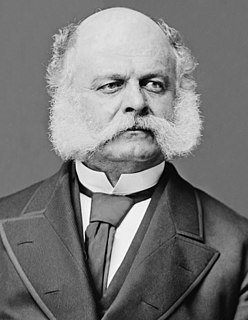A Quote by Ralph Waldo Emerson
The whole constitution of property on its present tenures, is injurious, and its influence on persons deteriorating and degrading.
Quote Topics
Related Quotes
The state should never have instituted and enforced legal property rights in persons, and should not have been in the business of returning runaway slaves to their "rightful owners." The whole institution of property in human beings was an unjust social institution and should not have been maintained in existence. It is this sort of thought that I'm appealing to at the supranational level.
One of the most extraordinary examples in recent decades [of unitary visions of constitutional enterprise] is found in a book called "Takings"... Epstein makes an extremely clever but stunningly reductionist argument that the whole Constitution is really designed to protect private property... Can a constitution reflecting as diverse an array of visions and aspirations as ours really be reducible to such as sadly single-minded vision as that?
For the mass of men the idea of artistic creation can only be expressed by an idea unpopular in present discussions - the idea of property... Property is merely the art of the democracy... One would think, to hear people talk, that the Rothschilds and the Rockefellers were on the side of property. But obviously they are the enemies of property; because they are enemies of their own limitations.
The power of the state to impose restraints and burdens upon persons and property in conservation and promotion of the public health, good order, and prosperity is a power originally and always belonging to the states, not surrendered to them by the general government, nor directly restrained by the constitution of the United States, and essentially exclusive.
But avarice and ambition in the rich, in the poor the hatred of labour and the love of present ease and enjoyment, are the passions which prompt to invade property, passions much more steady in their operation, and much more universal in their influence. Wherever there is great property there is great inequality. For one very rich man there must be at least five hundred poor, and the affluence of the few supposes the indigence of the many.









































